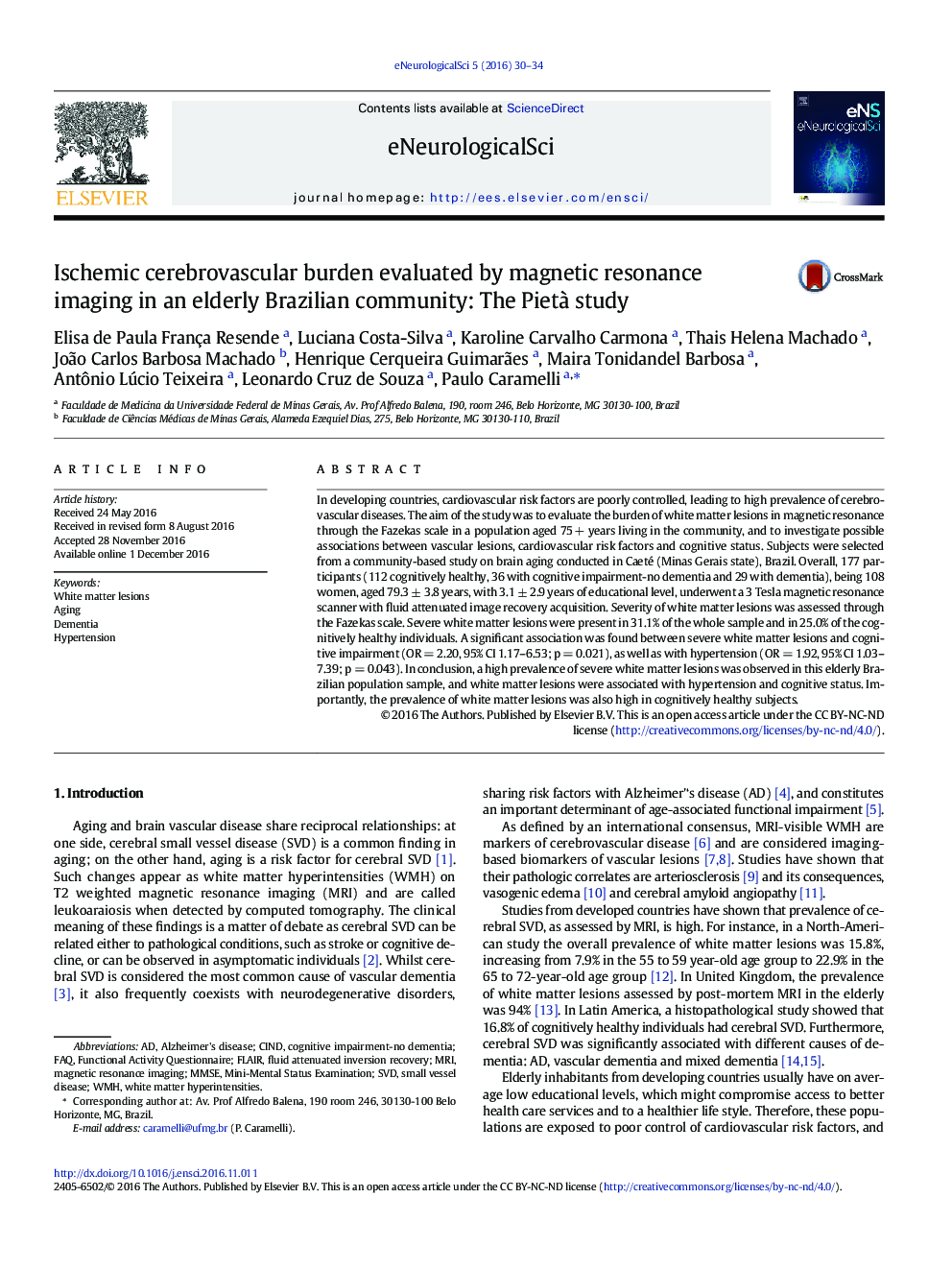| Article ID | Journal | Published Year | Pages | File Type |
|---|---|---|---|---|
| 8683460 | eNeurologicalSci | 2016 | 5 Pages |
Abstract
In developing countries, cardiovascular risk factors are poorly controlled, leading to high prevalence of cerebrovascular diseases. The aim of the study was to evaluate the burden of white matter lesions in magnetic resonance through the Fazekas scale in a population aged 75 + years living in the community, and to investigate possible associations between vascular lesions, cardiovascular risk factors and cognitive status. Subjects were selected from a community-based study on brain aging conducted in Caeté (Minas Gerais state), Brazil. Overall, 177 participants (112 cognitively healthy, 36 with cognitive impairment-no dementia and 29 with dementia), being 108 women, aged 79.3 ± 3.8 years, with 3.1 ± 2.9 years of educational level, underwent a 3 Tesla magnetic resonance scanner with fluid attenuated image recovery acquisition. Severity of white matter lesions was assessed through the Fazekas scale. Severe white matter lesions were present in 31.1% of the whole sample and in 25.0% of the cognitively healthy individuals. A significant association was found between severe white matter lesions and cognitive impairment (OR = 2.20, 95% CI 1.17-6.53; p = 0.021), as well as with hypertension (OR = 1.92, 95% CI 1.03-7.39; p = 0.043). In conclusion, a high prevalence of severe white matter lesions was observed in this elderly Brazilian population sample, and white matter lesions were associated with hypertension and cognitive status. Importantly, the prevalence of white matter lesions was also high in cognitively healthy subjects.
Keywords
Related Topics
Life Sciences
Neuroscience
Endocrine and Autonomic Systems
Authors
Elisa de Paula França Resende, Luciana Costa-Silva, Karoline Carvalho Carmona, Thais Helena Machado, João Carlos Barbosa Machado, Henrique Cerqueira Guimarães, Maira Tonidandel Barbosa, Antônio Lúcio Teixeira, Leonardo Cruz de Souza,
